- and preventing cancer from spreading
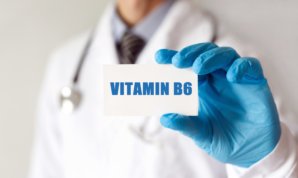 Vitamin B6is needed for over 150 enzyme processes and has an overlooked role in the prevention of inflammation, which is a common thread in most chronic diseases, including cancer. Severe vitamin B6 deficiencies are rare, but scientists believe that even moderate deficiencies of the nutrient can increase the risk of many diseases. Deficiencies and poor utilization are a result of unhealthy diets, ageing, stimulant abuse, hormone pills and certain medical drugs, which means that many people are at risk of lacking this important vitamin.
Vitamin B6is needed for over 150 enzyme processes and has an overlooked role in the prevention of inflammation, which is a common thread in most chronic diseases, including cancer. Severe vitamin B6 deficiencies are rare, but scientists believe that even moderate deficiencies of the nutrient can increase the risk of many diseases. Deficiencies and poor utilization are a result of unhealthy diets, ageing, stimulant abuse, hormone pills and certain medical drugs, which means that many people are at risk of lacking this important vitamin.
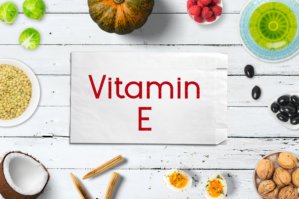 Professor Maret Traber from the Linus Pauling Institute in the United States has studied vitamin E for a number of years. Traber, in a review article, looked at the most recent science concerning this important, lipid-soluble nutrient. Judging from her work, it looks as if we only need the form of vitamin E called alfa-tocopherol.
Professor Maret Traber from the Linus Pauling Institute in the United States has studied vitamin E for a number of years. Traber, in a review article, looked at the most recent science concerning this important, lipid-soluble nutrient. Judging from her work, it looks as if we only need the form of vitamin E called alfa-tocopherol.
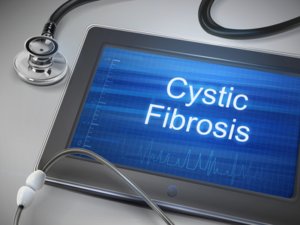 Supplementing with strong antioxidants such as beta-carotene, vitamin E, selenium, and coenzyme Q10 may help patients with cystic fibrosis by reducing a number of the respiratory infections that come with the disease. This was seen in a study by researchers at the Children’s Hospital Colorado and the University of Colorado, United States.
Supplementing with strong antioxidants such as beta-carotene, vitamin E, selenium, and coenzyme Q10 may help patients with cystic fibrosis by reducing a number of the respiratory infections that come with the disease. This was seen in a study by researchers at the Children’s Hospital Colorado and the University of Colorado, United States.
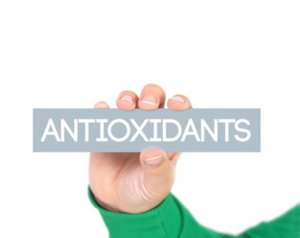 It is widely established that women of childbearing age have high levels of estrogen that protect them against cardiovascular disease. However, if they have type 1 diabetes, having high estrogen levels actually increases their risk of these diseases. A group of scientists is therefore planning to investigate whether nutritional supplements with antioxidants can protect diabetics against cardiovascular disease and the premature death caused by these ailments.
It is widely established that women of childbearing age have high levels of estrogen that protect them against cardiovascular disease. However, if they have type 1 diabetes, having high estrogen levels actually increases their risk of these diseases. A group of scientists is therefore planning to investigate whether nutritional supplements with antioxidants can protect diabetics against cardiovascular disease and the premature death caused by these ailments.
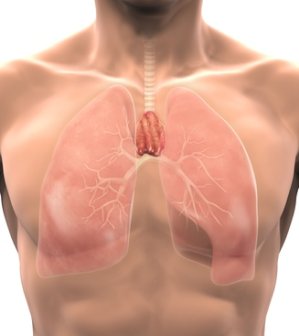 Even the earliest ageing processes are known to damage central parts of our immune system, leaving us more exposed to infection, inflammation, and cancer. However, new studies demonstrate that antioxidants such as vitamin C and selenium may repair the damage.
Even the earliest ageing processes are known to damage central parts of our immune system, leaving us more exposed to infection, inflammation, and cancer. However, new studies demonstrate that antioxidants such as vitamin C and selenium may repair the damage.
 Birth control pills are commonly used as a source of prevention. Most women seem to tolerate the pills rather well, but there are known side effects such as headaches, mood swings, and a slightly increased risk of blood clots and breast cancer. The different side effects are a result of the birth control pills and their disturbing impact on various enzyme processes, which depend on most B vitamins, vitamin C, magnesium, selenium, and zinc. Vitamin C, zinc, and selenium also serve as effective antioxidants that protect our cells and cardiovascular system against oxidative stress. It is therefore essential to get plenty of these nutrients in order to lower the risk of side effects.
Birth control pills are commonly used as a source of prevention. Most women seem to tolerate the pills rather well, but there are known side effects such as headaches, mood swings, and a slightly increased risk of blood clots and breast cancer. The different side effects are a result of the birth control pills and their disturbing impact on various enzyme processes, which depend on most B vitamins, vitamin C, magnesium, selenium, and zinc. Vitamin C, zinc, and selenium also serve as effective antioxidants that protect our cells and cardiovascular system against oxidative stress. It is therefore essential to get plenty of these nutrients in order to lower the risk of side effects.
 A new study shows that vitamin B3 has the potential to prevent skin cancer and melanoma, which is the most dangerous type of skin cancer. Apparently, vitamin B3 can boost the body’s repair of DNA damage caused by UV radiation from the sun or sunbeds.
A new study shows that vitamin B3 has the potential to prevent skin cancer and melanoma, which is the most dangerous type of skin cancer. Apparently, vitamin B3 can boost the body’s repair of DNA damage caused by UV radiation from the sun or sunbeds.
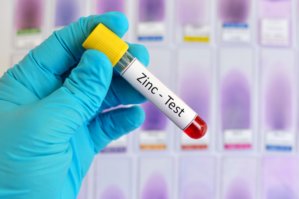 This almost sounds too good to be true, but scientists from Germany and the United States have discovered that zinccombined with a compound found in cocoa beans, coffee beans, tea leaves, and grapes is able to activate a particular molecule that protects against oxidative stress. In ageing, oxidative stress holds a key role. It is caused by an imbalance between harmful free radicals and protective antioxidants. Although anti-ageing is normally conceived as something that can delay the exterior signs of ageing, it is really more important to slow down internal ageing such as atherosclerosis, fatigue, dementia, and early death in worst case. Many people lack zinc, and deficiencies of this nutrient are widespread and typically observed among vegetarians, vegans, older people, and pregnant and breastfeeding women. What the scientists are telling us now is that it is good for us to enjoy a little dark chocolate, coffee or tea in order to benefit even more from the zinc we get.
This almost sounds too good to be true, but scientists from Germany and the United States have discovered that zinccombined with a compound found in cocoa beans, coffee beans, tea leaves, and grapes is able to activate a particular molecule that protects against oxidative stress. In ageing, oxidative stress holds a key role. It is caused by an imbalance between harmful free radicals and protective antioxidants. Although anti-ageing is normally conceived as something that can delay the exterior signs of ageing, it is really more important to slow down internal ageing such as atherosclerosis, fatigue, dementia, and early death in worst case. Many people lack zinc, and deficiencies of this nutrient are widespread and typically observed among vegetarians, vegans, older people, and pregnant and breastfeeding women. What the scientists are telling us now is that it is good for us to enjoy a little dark chocolate, coffee or tea in order to benefit even more from the zinc we get.
 It is commonly known that vitamin A is good for your vision, but most people are unaware that we also need specific nutrients in order for our hearing to function optimally. In this connection, age-related hearing loss is not necessarily linked to mechanical dysfunctions of the ear but rather to how the brain processes the sound information.
It is commonly known that vitamin A is good for your vision, but most people are unaware that we also need specific nutrients in order for our hearing to function optimally. In this connection, age-related hearing loss is not necessarily linked to mechanical dysfunctions of the ear but rather to how the brain processes the sound information.
- which is why we need enough vitamin C, selenium, and other antioxidants
 Modern man is exposed to a lot of free radicals because of factors like stress, environmental toxins, etc. Free radicals are like “internal terrorists” that contribute to atherosclerosis, diabetes, Alzheimer’s disease, cancer, and a host of other diseases. Our only protection against free radicals are antioxidants from vitamins, minerals, and plant compounds. Antioxidants work in different ways. Being deficient in a single primary antioxidant such as selenium may leave the body vulnerable to oxidative stress and disease. What most people are unaware of is that free radicals are also essential, as they are a part of our energy turnover and immune defense. The question is how do we protect ourselves the best against infections, oxidative stress, and disease? What type of antioxidant do we get from dark chocolate, green tea, coffee and red wine? How does redox therapy with vitamin C in great quantities work on cancer patients? You can read more about these topics in the following.
Modern man is exposed to a lot of free radicals because of factors like stress, environmental toxins, etc. Free radicals are like “internal terrorists” that contribute to atherosclerosis, diabetes, Alzheimer’s disease, cancer, and a host of other diseases. Our only protection against free radicals are antioxidants from vitamins, minerals, and plant compounds. Antioxidants work in different ways. Being deficient in a single primary antioxidant such as selenium may leave the body vulnerable to oxidative stress and disease. What most people are unaware of is that free radicals are also essential, as they are a part of our energy turnover and immune defense. The question is how do we protect ourselves the best against infections, oxidative stress, and disease? What type of antioxidant do we get from dark chocolate, green tea, coffee and red wine? How does redox therapy with vitamin C in great quantities work on cancer patients? You can read more about these topics in the following.
 Having healthy-looking hair means a lot to most people. Hair that splits at the ends, hair loss, and other hair problems may be caused by stress, hormone changes, and numerous other factors. In this article, we will take a closer look at the diet and its impact on hair health, and we will look at available studies of protein, iron, zinc, selenium, silica, B vitamins, vitamin D and vitamin A. The fact is, we need plenty of these nutrients in a form that the body can absorb and utilize. On the other hand, getting too much can do more harm than good, according to an article in Dermatology Practical & Conceptual, in which the author has analyzed the available research.
Having healthy-looking hair means a lot to most people. Hair that splits at the ends, hair loss, and other hair problems may be caused by stress, hormone changes, and numerous other factors. In this article, we will take a closer look at the diet and its impact on hair health, and we will look at available studies of protein, iron, zinc, selenium, silica, B vitamins, vitamin D and vitamin A. The fact is, we need plenty of these nutrients in a form that the body can absorb and utilize. On the other hand, getting too much can do more harm than good, according to an article in Dermatology Practical & Conceptual, in which the author has analyzed the available research.
-and many chronically ill people do not get the proper diagnosis or treatment
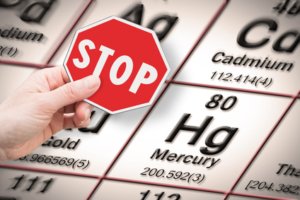 The most harmful heavy metals are mercury, cadmium, lead, nickel, and cobber, but aluminum, fluoride, iron, and calcium can also be toxic. Poisoning with heavy metals and minerals blocks other minerals such as selenium, iodine, magnesium, and zinc, all of which support numerous essential enzyme processes. At the same time, if you lack these important minerals, heavy metals are able to cause unhindered damage and increase your risk of impaired immunity, impaired fertility, autoimmune diseases, thyroid diseases, brain damage, neurological diseases, depression, hypersensitivity, etc. Chronic heavy metal toxicity is an overlooked problem, but in this article, you can read more about the subject and find out how to deal with it.
The most harmful heavy metals are mercury, cadmium, lead, nickel, and cobber, but aluminum, fluoride, iron, and calcium can also be toxic. Poisoning with heavy metals and minerals blocks other minerals such as selenium, iodine, magnesium, and zinc, all of which support numerous essential enzyme processes. At the same time, if you lack these important minerals, heavy metals are able to cause unhindered damage and increase your risk of impaired immunity, impaired fertility, autoimmune diseases, thyroid diseases, brain damage, neurological diseases, depression, hypersensitivity, etc. Chronic heavy metal toxicity is an overlooked problem, but in this article, you can read more about the subject and find out how to deal with it.
- and some good dietary advice
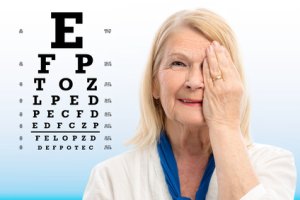 AMD (Age-related Macular Degeneration) is a common eye disease that impairs your reading vision in particular. High-dosed supplementation with vitamin C, vitamin E, zinc and other antioxidants has been shown to help. The recommendation of these nutrients is based on documentation from a large American research project and demonstrate that normal recommendations (DRI = Daily Reference Intake) are inadequate as treatment for various disorders. There are also different foods that are highly relevant for preventing AMD or as part of a treatment against the condition.
AMD (Age-related Macular Degeneration) is a common eye disease that impairs your reading vision in particular. High-dosed supplementation with vitamin C, vitamin E, zinc and other antioxidants has been shown to help. The recommendation of these nutrients is based on documentation from a large American research project and demonstrate that normal recommendations (DRI = Daily Reference Intake) are inadequate as treatment for various disorders. There are also different foods that are highly relevant for preventing AMD or as part of a treatment against the condition.
- with links to cancer, Parkinson’s disease, and other neurological disorders
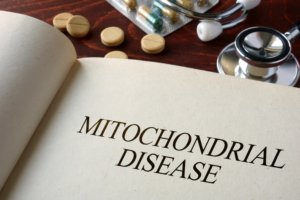 The mitochondria are the powerhouses of our cells that churn out energy in a process that involves oxygen, Q10, selenium, and other nutrients. Around 100 years ago, the German Nobel Prize winner, Professor Otto Warburg, demonstrated that even if cancer can be caused by a number of secondary factors, there is only one primary cause: alterations in the mitochondrial oxygen turnover. In his recent book, Tripping over the Truth, molecular biologist Travis Christoffersen describes how contemporary scientists confirm Warburg’s theories and says that we need to look at prevention and cancer treatment from an entirely different angle. Other studies show that Parkinson’s disease, migraine, senility, chronic fatigue, fibromyalgia, epilepsy, and other neurological disorders may be rooted in defects of the mitochondria that have many other functions besides delivering energy. It is therefore vital to take care of the mitochondria throughout life. You can read more about the ketogenic diet that optimizes mitochondrial energy turnover in different mitochondrial diseases.
The mitochondria are the powerhouses of our cells that churn out energy in a process that involves oxygen, Q10, selenium, and other nutrients. Around 100 years ago, the German Nobel Prize winner, Professor Otto Warburg, demonstrated that even if cancer can be caused by a number of secondary factors, there is only one primary cause: alterations in the mitochondrial oxygen turnover. In his recent book, Tripping over the Truth, molecular biologist Travis Christoffersen describes how contemporary scientists confirm Warburg’s theories and says that we need to look at prevention and cancer treatment from an entirely different angle. Other studies show that Parkinson’s disease, migraine, senility, chronic fatigue, fibromyalgia, epilepsy, and other neurological disorders may be rooted in defects of the mitochondria that have many other functions besides delivering energy. It is therefore vital to take care of the mitochondria throughout life. You can read more about the ketogenic diet that optimizes mitochondrial energy turnover in different mitochondrial diseases.
- here are some delicious sources
 Type 2 diabetes and early stages of the disease such as insulin resistance are spreading like a bushfire. The good news is that if you consume many antioxidants from fruit, vegetables, berries, tea, and dark chocolate and limit your intake of alcohol, you can lower your risk diabetes risk. This was shown in a new study that is published in the European journal Diabetologia, which focuses on diabetes research.
Type 2 diabetes and early stages of the disease such as insulin resistance are spreading like a bushfire. The good news is that if you consume many antioxidants from fruit, vegetables, berries, tea, and dark chocolate and limit your intake of alcohol, you can lower your risk diabetes risk. This was shown in a new study that is published in the European journal Diabetologia, which focuses on diabetes research.
 Type 2 diabetes and early stages of the disease such as insulin resistance are spreading like a bushfire. The good news is that if you consume many antioxidants from fruit, vegetables, berries, tea, and dark chocolate and limit your intake of alcohol, you can lower your risk diabetes risk. This was shown in a new study that is published in the European journal Diabetologia, which focuses on diabetes research.
Type 2 diabetes and early stages of the disease such as insulin resistance are spreading like a bushfire. The good news is that if you consume many antioxidants from fruit, vegetables, berries, tea, and dark chocolate and limit your intake of alcohol, you can lower your risk diabetes risk. This was shown in a new study that is published in the European journal Diabetologia, which focuses on diabetes research.
 More than 25 percent of people older than 65 years have low levels of vitamin D in their blood. Deficiencies in vitamin B12, folic acid, and iron are also common. This is the conclusion of a large study that was conducted by scientists from Helmholtz Zentrum in Munich, Germany. The widespread lack of vitamins and minerals among older people is critical, especially because this population group is increasing. The lack of essential nutrients affects the calcium uptake, immune defense, and nervous system among other things, leaving older people increasingly vulnerable to osteoporosis, influenza, dementia, and a host of other diseases that impair quality of life and burden the entire public health sector.
More than 25 percent of people older than 65 years have low levels of vitamin D in their blood. Deficiencies in vitamin B12, folic acid, and iron are also common. This is the conclusion of a large study that was conducted by scientists from Helmholtz Zentrum in Munich, Germany. The widespread lack of vitamins and minerals among older people is critical, especially because this population group is increasing. The lack of essential nutrients affects the calcium uptake, immune defense, and nervous system among other things, leaving older people increasingly vulnerable to osteoporosis, influenza, dementia, and a host of other diseases that impair quality of life and burden the entire public health sector.
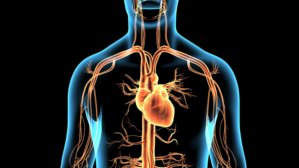 Melatonin is primarily known as a sleep hormone and a powerful antioxidant. According to a new study, melatonin may even improve the condition of rats that have heart rhythm disturbances with an increased risk of heart attack. Melatonin’s ability to improve the heart function is not related to its antioxidant function, however, and that surprised the scientists behind the study. The new study was presented at an annual meeting for the American Physiological Society (APS) in Orlando. Melatonin has several vital functions, but as we age our endogenous production decreases. Not only does this affect our quality of sleep, it also has a negative impact on the heart and the body’s cells.
Melatonin is primarily known as a sleep hormone and a powerful antioxidant. According to a new study, melatonin may even improve the condition of rats that have heart rhythm disturbances with an increased risk of heart attack. Melatonin’s ability to improve the heart function is not related to its antioxidant function, however, and that surprised the scientists behind the study. The new study was presented at an annual meeting for the American Physiological Society (APS) in Orlando. Melatonin has several vital functions, but as we age our endogenous production decreases. Not only does this affect our quality of sleep, it also has a negative impact on the heart and the body’s cells.
- and that increases the need for selenium
 Selenium is necessary for ensuring proper functioning of around 25 different enzymes – also known as selenoproteins – that are essential for energy turnover, metabolism, immune defense, fertility, and for antioxidant protection to help prevent cells and DNA from being damaged by oxidative stress. Selenium is also a so-called mercury antagonist that works by attaching itself to mercury, thereby preventing mercury’s harmful impact on the brain and nervous system. Once selenium has attached to mercury, however, it is no longer available to carry out all of its essential functions in the body. Because we are all exposed to mercury in some degree, this may cause a relative selenium deficiency that leaves our brain and nervous system particularly vulnerable to oxidative damage. In a new review article based on published research, Professor Nicholas V.C. Ralston and Dr. Laura J. Raymond explain why the toxic damage to the brain and nervous system is primarily a result of mercury’s inhibiting impact on the selenium metabolism. Selenium deficiencies are rather common, and mercury poisoning is an insidious problem, so the combination of these two problems deserves a lot more attention.
Selenium is necessary for ensuring proper functioning of around 25 different enzymes – also known as selenoproteins – that are essential for energy turnover, metabolism, immune defense, fertility, and for antioxidant protection to help prevent cells and DNA from being damaged by oxidative stress. Selenium is also a so-called mercury antagonist that works by attaching itself to mercury, thereby preventing mercury’s harmful impact on the brain and nervous system. Once selenium has attached to mercury, however, it is no longer available to carry out all of its essential functions in the body. Because we are all exposed to mercury in some degree, this may cause a relative selenium deficiency that leaves our brain and nervous system particularly vulnerable to oxidative damage. In a new review article based on published research, Professor Nicholas V.C. Ralston and Dr. Laura J. Raymond explain why the toxic damage to the brain and nervous system is primarily a result of mercury’s inhibiting impact on the selenium metabolism. Selenium deficiencies are rather common, and mercury poisoning is an insidious problem, so the combination of these two problems deserves a lot more attention.
- and routine screening is not enough
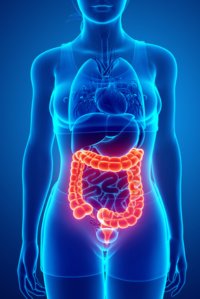 Cancer in the colon and rectum is rather common. One in 20 Danes gets colon cancer at some point in life. Since 2014, the Danish Health Authority has recommended a screening program, offering middle-aged and older people a screening for colon cancer every other year. If the disease is discovered in its early stage, the chances of successful treatment increase. Supplementation with organic selenium yeast has been shown to lower the risk of colorectal cancer in the first place, and selenium even has a protective effect against other cancer forms, so the nutrient is an essential part of the prevention. The problem is that selenium deficiencies are so common as a result of our nutrient-depleted soil.
Cancer in the colon and rectum is rather common. One in 20 Danes gets colon cancer at some point in life. Since 2014, the Danish Health Authority has recommended a screening program, offering middle-aged and older people a screening for colon cancer every other year. If the disease is discovered in its early stage, the chances of successful treatment increase. Supplementation with organic selenium yeast has been shown to lower the risk of colorectal cancer in the first place, and selenium even has a protective effect against other cancer forms, so the nutrient is an essential part of the prevention. The problem is that selenium deficiencies are so common as a result of our nutrient-depleted soil.
 An important element in skincare and natural anti-ageing is to protect our cells against free radicals, which are aggressive oxygen compounds that we humans are exposed to. The free radical burden increases tremendously as a result of stress, too little sleep, ageing processes, smoking, inflammation, poisoning, medical drugs, and sunburns. Our only source of protection against free radicals is the presence of different antioxidants such as vitamins A, C, and E, selenium, zinc, and Q10, but we also need essential fatty acids. Optimal skincare requires that we get adequate quantities of the different nutrients, which are also an important element in our energy turnover. But what is skin ageing really? And why can we not simply stop it with anti-wrinkle creams, Botox, and plastic surgery? Also, which antioxidants and essential fatty acids are difficult to get in the right quantities?
An important element in skincare and natural anti-ageing is to protect our cells against free radicals, which are aggressive oxygen compounds that we humans are exposed to. The free radical burden increases tremendously as a result of stress, too little sleep, ageing processes, smoking, inflammation, poisoning, medical drugs, and sunburns. Our only source of protection against free radicals is the presence of different antioxidants such as vitamins A, C, and E, selenium, zinc, and Q10, but we also need essential fatty acids. Optimal skincare requires that we get adequate quantities of the different nutrients, which are also an important element in our energy turnover. But what is skin ageing really? And why can we not simply stop it with anti-wrinkle creams, Botox, and plastic surgery? Also, which antioxidants and essential fatty acids are difficult to get in the right quantities?
 The blood supply to the retina of the eye is crucial for good vision. For that reason, experts recommend taking antioxidant supplements against eye diseases caused by an impaired blood supply to the retina. Although there is lacking evidence for the effectiveness of such supplements it appears now that Q10 and other antioxidants may improve vision when used in combination with conventional therapies, according to a Spanish study that is published in Nutrients. Because the body has difficulty with absorbing Q10 from supplements it is important to choose a supplement that has good bioavailability.
The blood supply to the retina of the eye is crucial for good vision. For that reason, experts recommend taking antioxidant supplements against eye diseases caused by an impaired blood supply to the retina. Although there is lacking evidence for the effectiveness of such supplements it appears now that Q10 and other antioxidants may improve vision when used in combination with conventional therapies, according to a Spanish study that is published in Nutrients. Because the body has difficulty with absorbing Q10 from supplements it is important to choose a supplement that has good bioavailability.
- and widespread deficiency has serious consequences
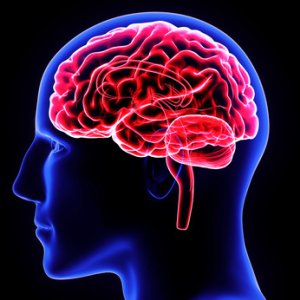 It is commonly known that vitamin C has an essential role in our connective tissue and immune defense. However, vitamin C is also vital for the brain. This was demonstrated in a new Australian study of the link between vitamin C and cognitive functions like memory, lingual skills, calculation, and orientation. The scientists also point to the fact that vitamin C deficiency is rather common in western countries, either due to dietary factors or because of conditions that increase the need for the nutrient.
It is commonly known that vitamin C has an essential role in our connective tissue and immune defense. However, vitamin C is also vital for the brain. This was demonstrated in a new Australian study of the link between vitamin C and cognitive functions like memory, lingual skills, calculation, and orientation. The scientists also point to the fact that vitamin C deficiency is rather common in western countries, either due to dietary factors or because of conditions that increase the need for the nutrient.
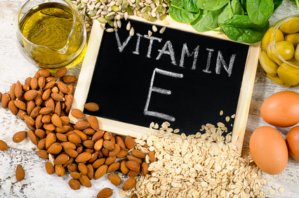 Vitamin E is said to be a powerful antioxidant that counteracts wrinkles, reduces the degeneration of joints in rheumatoid arthritis, and even protects against atherosclerosis and cancer. However, studies have shown contradictory results, and the positive effects are most probably a result of luck. Now, a team of international scientists has demonstrated that the effect of vitamin E is not related to the vitamin itself but rather to the effect of a vitamin E-dependent metabolite that is produced in the liver. The researchers see a huge potential in vitamin E therapy that is tailored to fit each person’s individual utilization and metabolism of the nutrient. Vitamin E supplements should contain natural forms of the vitamin to provide the best effect.
Vitamin E is said to be a powerful antioxidant that counteracts wrinkles, reduces the degeneration of joints in rheumatoid arthritis, and even protects against atherosclerosis and cancer. However, studies have shown contradictory results, and the positive effects are most probably a result of luck. Now, a team of international scientists has demonstrated that the effect of vitamin E is not related to the vitamin itself but rather to the effect of a vitamin E-dependent metabolite that is produced in the liver. The researchers see a huge potential in vitamin E therapy that is tailored to fit each person’s individual utilization and metabolism of the nutrient. Vitamin E supplements should contain natural forms of the vitamin to provide the best effect.
 During the winter period, many people catch a cold or are bed-ridden with a bout of the flu. They may consider this to be perfectly natural, but it is actually a sign of a weakened immune defense, and that makes them susceptible to contamination. What matters is to make sure to get plenty of vitamin D, vitamin C, selenium, and zinc, all of which are nutrients that have different functions in the immune system. Some nutrients are also needed in larger quantities to tackle a beginning infection, and it is important to act quickly in order to nip the infection in the bud.
During the winter period, many people catch a cold or are bed-ridden with a bout of the flu. They may consider this to be perfectly natural, but it is actually a sign of a weakened immune defense, and that makes them susceptible to contamination. What matters is to make sure to get plenty of vitamin D, vitamin C, selenium, and zinc, all of which are nutrients that have different functions in the immune system. Some nutrients are also needed in larger quantities to tackle a beginning infection, and it is important to act quickly in order to nip the infection in the bud.
In fact, it is vital for us to be nutritionally bolstered during the winter period, where otherwise harmless virus infections can lead to complications such as herpes, bronchitis, and pneumonia, if the immune system is unable to work full throttle.
 Pure vitamin A (retinol) is a lipid-soluble vitamin. It is primarily found in animal sources that contain fat. Vegetable sources contain a lipid-soluble precursor of vitamin A called beta-carotene. Pure vitamin A is primarily stored in the liver and in fatty tissue, for which reason we do not need a daily supply of the nutrient. Vitamin A and zinc work together. A deficiency in one nutrient will therefore affect the other. On a global scale, vitamin A deficiencies are widespread. In Western countries vitamin A deficiency is normally seen in connection with chronic disease. Vitamin A is destroyed when exposed to oxygen or heat, for instance during cooking.
Pure vitamin A (retinol) is a lipid-soluble vitamin. It is primarily found in animal sources that contain fat. Vegetable sources contain a lipid-soluble precursor of vitamin A called beta-carotene. Pure vitamin A is primarily stored in the liver and in fatty tissue, for which reason we do not need a daily supply of the nutrient. Vitamin A and zinc work together. A deficiency in one nutrient will therefore affect the other. On a global scale, vitamin A deficiencies are widespread. In Western countries vitamin A deficiency is normally seen in connection with chronic disease. Vitamin A is destroyed when exposed to oxygen or heat, for instance during cooking.
 Vitamin C is also known as ascorbic acid and L-ascorbic acid. Most animals are able to synthesise vitamin C by means of a stepwise, enzymatic conversion of glucose (dextrose). However, humans, apes, guinea pigs, and certain other animals have lost this ability during evolution. The largest concentrations of vitamin C are found in the white cells of the immune defence, the pancreas, the testicles, and the ovaries. Vitamin C is water-soluble and as it is not stored in the body, we depend on regular intake of the nutrient. Vitamin C is destroyed by light, heat, boiling, freezing, preservation, and storage (including winter storage of vegetables and fruit).
Vitamin C is also known as ascorbic acid and L-ascorbic acid. Most animals are able to synthesise vitamin C by means of a stepwise, enzymatic conversion of glucose (dextrose). However, humans, apes, guinea pigs, and certain other animals have lost this ability during evolution. The largest concentrations of vitamin C are found in the white cells of the immune defence, the pancreas, the testicles, and the ovaries. Vitamin C is water-soluble and as it is not stored in the body, we depend on regular intake of the nutrient. Vitamin C is destroyed by light, heat, boiling, freezing, preservation, and storage (including winter storage of vegetables and fruit).
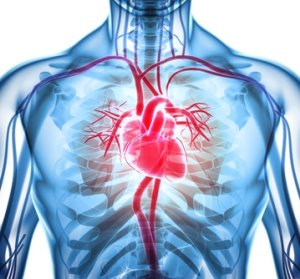 We all are exposed to some degree of air pollution, but a new study shows that supplements of vitamin E and omega-3 fatty acids work like a dynamic duo with a highly protective effect on cells and the cardiovascular system. This is because vitamin E is a powerful antioxidant and omega-3 fatty acids have anti-inflammatory properties.
We all are exposed to some degree of air pollution, but a new study shows that supplements of vitamin E and omega-3 fatty acids work like a dynamic duo with a highly protective effect on cells and the cardiovascular system. This is because vitamin E is a powerful antioxidant and omega-3 fatty acids have anti-inflammatory properties.
 Why do we need supplements in some situations?
Why do we need supplements in some situations?
We humans depend on an array of different nutrients in order to thrive and be able to prevent various diseases. However, even with a healthy and balanced diet there may be circumstances that call for the use of supplements:
- Depleted soil typically lacks minerals and trace elements
- The process of refining, boiling, frying, and exposing food to other types of thorough preparation reduces its content of many different nutrients
- In our part of the world, we are unable to synthesise vitamin D from sunlight during the winter period
- Environmental pollution, stimulant abuse, and the use of medicine challenges the body's immune defence and cleansing organs
- Stress, pregnancy, lactation, age, disease, and high-performance sports activities often increase the need for a number of different nutrients
 Large population studies of adults and their diet habits often tend to overlook certain groups such as younger adults. A British study therefore took a closer look at eating habits of adults in their twenties, thirties, forties, and fifties. It revealed a widespread lack of B vitamins, magnesium, potassium, iodine, zinc, and selenium. Being deficient in these essential nutrients can harm your fertility and increase your risk of different diseases, while speeding up concealed ageing processes such as loss of cognition and bone mass.
Large population studies of adults and their diet habits often tend to overlook certain groups such as younger adults. A British study therefore took a closer look at eating habits of adults in their twenties, thirties, forties, and fifties. It revealed a widespread lack of B vitamins, magnesium, potassium, iodine, zinc, and selenium. Being deficient in these essential nutrients can harm your fertility and increase your risk of different diseases, while speeding up concealed ageing processes such as loss of cognition and bone mass.
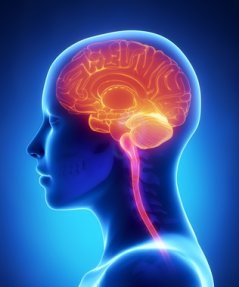 Vitamin C is extremely important for the brain’s blood vessels, nerve cells, neurotransmitters, and connective tissue. An estimated 10 percent of the adult population is vitamin C deficient without specific symptoms. According to a scientific article in the Danish journal Aktuel Videnskab, vitamin C deficiency during pregnancy may harm brain development in the fetus.
Vitamin C is extremely important for the brain’s blood vessels, nerve cells, neurotransmitters, and connective tissue. An estimated 10 percent of the adult population is vitamin C deficient without specific symptoms. According to a scientific article in the Danish journal Aktuel Videnskab, vitamin C deficiency during pregnancy may harm brain development in the fetus.
 Decades of intensive farming have depleted the soil. As a result, crops lack up to 40% of their essential nutrients, according to a previously published study from University of Texas and a more recent one from Switzerland. Even if you stick to the official dietary guidelines, you may have difficulty with getting enough calcium, selenium, zinc, iron, vitamin B2, vitamin C, and other essential micronutrients that are required for good health.
Decades of intensive farming have depleted the soil. As a result, crops lack up to 40% of their essential nutrients, according to a previously published study from University of Texas and a more recent one from Switzerland. Even if you stick to the official dietary guidelines, you may have difficulty with getting enough calcium, selenium, zinc, iron, vitamin B2, vitamin C, and other essential micronutrients that are required for good health.
 Zinc is a trace element that is found in all cells and body fluids. Zinc is essential for normal functioning of around 200 different enzymes that control growth, metabolism, the nervous system, the immune function, and a variety of other functions. Most of our zinc is found in muscle tissue and bone tissue and there is a rather large zinc concentration in the prostate gland and in the choroidal membrane of the eye. Around 11% of our zinc is found in the skin and liver. An adult contains 2-4 grams of zinc. We are only able to absorb 10-30% of the zinc that we get from our diet, and there are several factors that can either increase or decrease zinc absorption.
Zinc is a trace element that is found in all cells and body fluids. Zinc is essential for normal functioning of around 200 different enzymes that control growth, metabolism, the nervous system, the immune function, and a variety of other functions. Most of our zinc is found in muscle tissue and bone tissue and there is a rather large zinc concentration in the prostate gland and in the choroidal membrane of the eye. Around 11% of our zinc is found in the skin and liver. An adult contains 2-4 grams of zinc. We are only able to absorb 10-30% of the zinc that we get from our diet, and there are several factors that can either increase or decrease zinc absorption.
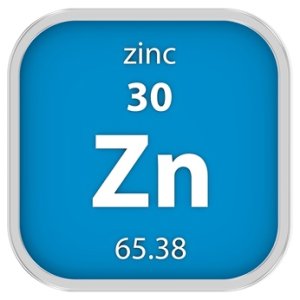 Zinc strengthens the immune defense and controls inflammatory conditions such as eczema. According to a Finnish meta-analysis, high-dosed zinc supplements can help the immune defense fight a regular cold much faster. It turns out that there are widespread zinc deficiencies. First of all, sugar, birth control pills, inorganic iron supplements, and normal ageing processes impair the body’s zinc uptake. Secondly, it may be difficult to get enough zinc if you are on a vegetarian or vegan diet. Not only does a zinc deficiency have a negative effect on your immune defense and skin health, it also upsets the countless enzymatic processes in which zinc is involved.
Zinc strengthens the immune defense and controls inflammatory conditions such as eczema. According to a Finnish meta-analysis, high-dosed zinc supplements can help the immune defense fight a regular cold much faster. It turns out that there are widespread zinc deficiencies. First of all, sugar, birth control pills, inorganic iron supplements, and normal ageing processes impair the body’s zinc uptake. Secondly, it may be difficult to get enough zinc if you are on a vegetarian or vegan diet. Not only does a zinc deficiency have a negative effect on your immune defense and skin health, it also upsets the countless enzymatic processes in which zinc is involved.
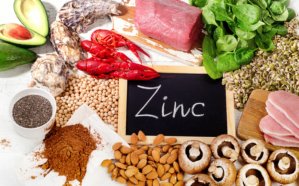 Our ability to absorb zinc is reduced with age, and many older people lack zinc, even though there is plenty of zinc in the diet they eat. The trace element is involved in over 1,000 enzyme processes and is also an important antioxidant that protects our cells. Even minor zinc deficiencies can speed up ageing processes and contribute to skin and hair problems, infections such as bladder infections, chronic inflammation, elevated blood pressure, cancer, and other diseases. People with unhealthy diets, vegetarians, vegans, and older people are at particularly vulnerable. Certain types of medicine that many seniors take can also increase the risk of a zinc deficiency.
Our ability to absorb zinc is reduced with age, and many older people lack zinc, even though there is plenty of zinc in the diet they eat. The trace element is involved in over 1,000 enzyme processes and is also an important antioxidant that protects our cells. Even minor zinc deficiencies can speed up ageing processes and contribute to skin and hair problems, infections such as bladder infections, chronic inflammation, elevated blood pressure, cancer, and other diseases. People with unhealthy diets, vegetarians, vegans, and older people are at particularly vulnerable. Certain types of medicine that many seniors take can also increase the risk of a zinc deficiency.
 Vitamin B6is needed for over 150 enzyme processes and has an overlooked role in the prevention of inflammation, which is a common thread in most chronic diseases, including cancer. Severe vitamin B6 deficiencies are rare, but scientists believe that even moderate deficiencies of the nutrient can increase the risk of many diseases. Deficiencies and poor utilization are a result of unhealthy diets, ageing, stimulant abuse, hormone pills and certain medical drugs, which means that many people are at risk of lacking this important vitamin.
Vitamin B6is needed for over 150 enzyme processes and has an overlooked role in the prevention of inflammation, which is a common thread in most chronic diseases, including cancer. Severe vitamin B6 deficiencies are rare, but scientists believe that even moderate deficiencies of the nutrient can increase the risk of many diseases. Deficiencies and poor utilization are a result of unhealthy diets, ageing, stimulant abuse, hormone pills and certain medical drugs, which means that many people are at risk of lacking this important vitamin.







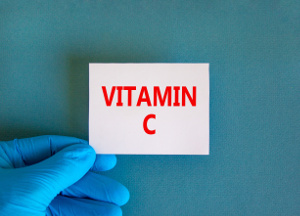




 Supplementing with strong antioxidants such as beta-carotene, vitamin E, selenium, and coenzyme Q10 may help patients with cystic fibrosis by reducing a number of the respiratory infections that come with the disease. This was seen in a study by researchers at the Children’s Hospital Colorado and the University of Colorado, United States.
Supplementing with strong antioxidants such as beta-carotene, vitamin E, selenium, and coenzyme Q10 may help patients with cystic fibrosis by reducing a number of the respiratory infections that come with the disease. This was seen in a study by researchers at the Children’s Hospital Colorado and the University of Colorado, United States. It is widely established that women of childbearing age have high levels of estrogen that protect them against cardiovascular disease. However, if they have type 1 diabetes, having high estrogen levels actually increases their risk of these diseases. A group of scientists is therefore planning to investigate whether nutritional supplements with antioxidants can protect diabetics against cardiovascular disease and the premature death caused by these ailments.
It is widely established that women of childbearing age have high levels of estrogen that protect them against cardiovascular disease. However, if they have type 1 diabetes, having high estrogen levels actually increases their risk of these diseases. A group of scientists is therefore planning to investigate whether nutritional supplements with antioxidants can protect diabetics against cardiovascular disease and the premature death caused by these ailments. Even the earliest ageing processes are known to damage central parts of our immune system, leaving us more exposed to infection, inflammation, and cancer. However, new studies demonstrate that antioxidants such as
Even the earliest ageing processes are known to damage central parts of our immune system, leaving us more exposed to infection, inflammation, and cancer. However, new studies demonstrate that antioxidants such as  Birth control pills are commonly used as a source of prevention. Most women seem to tolerate the pills rather well, but there are known side effects such as headaches, mood swings, and a slightly increased risk of blood clots and breast cancer. The different side effects are a result of the birth control pills and their disturbing impact on various enzyme processes, which depend on most B vitamins, vitamin C, magnesium, selenium, and zinc. Vitamin C, zinc, and selenium also serve as effective antioxidants that protect our cells and cardiovascular system against oxidative stress. It is therefore essential to get plenty of these nutrients in order to lower the risk of side effects.
Birth control pills are commonly used as a source of prevention. Most women seem to tolerate the pills rather well, but there are known side effects such as headaches, mood swings, and a slightly increased risk of blood clots and breast cancer. The different side effects are a result of the birth control pills and their disturbing impact on various enzyme processes, which depend on most B vitamins, vitamin C, magnesium, selenium, and zinc. Vitamin C, zinc, and selenium also serve as effective antioxidants that protect our cells and cardiovascular system against oxidative stress. It is therefore essential to get plenty of these nutrients in order to lower the risk of side effects. A new study shows that
A new study shows that  This almost sounds too good to be true, but scientists from Germany and the United States have discovered that
This almost sounds too good to be true, but scientists from Germany and the United States have discovered that  It is commonly known that vitamin A is good for your vision, but most people are unaware that we also need specific nutrients in order for our hearing to function optimally. In this connection, age-related hearing loss is not necessarily linked to mechanical dysfunctions of the ear but rather to how the brain processes the sound information.
It is commonly known that vitamin A is good for your vision, but most people are unaware that we also need specific nutrients in order for our hearing to function optimally. In this connection, age-related hearing loss is not necessarily linked to mechanical dysfunctions of the ear but rather to how the brain processes the sound information. Modern man is exposed to a lot of free radicals because of factors like stress, environmental toxins, etc. Free radicals are like “internal terrorists” that contribute to atherosclerosis, diabetes, Alzheimer’s disease, cancer, and a host of other diseases. Our only protection against free radicals are antioxidants from vitamins, minerals, and plant compounds. Antioxidants work in different ways. Being deficient in a single primary antioxidant such as selenium may leave the body vulnerable to oxidative stress and disease. What most people are unaware of is that free radicals are also essential, as they are a part of our energy turnover and immune defense. The question is how do we protect ourselves the best against infections, oxidative stress, and disease? What type of antioxidant do we get from dark chocolate, green tea, coffee and red wine? How does redox therapy with vitamin C in great quantities work on cancer patients? You can read more about these topics in the following.
Modern man is exposed to a lot of free radicals because of factors like stress, environmental toxins, etc. Free radicals are like “internal terrorists” that contribute to atherosclerosis, diabetes, Alzheimer’s disease, cancer, and a host of other diseases. Our only protection against free radicals are antioxidants from vitamins, minerals, and plant compounds. Antioxidants work in different ways. Being deficient in a single primary antioxidant such as selenium may leave the body vulnerable to oxidative stress and disease. What most people are unaware of is that free radicals are also essential, as they are a part of our energy turnover and immune defense. The question is how do we protect ourselves the best against infections, oxidative stress, and disease? What type of antioxidant do we get from dark chocolate, green tea, coffee and red wine? How does redox therapy with vitamin C in great quantities work on cancer patients? You can read more about these topics in the following. Having healthy-looking hair means a lot to most people. Hair that splits at the ends, hair loss, and other hair problems may be caused by stress, hormone changes, and numerous other factors. In this article, we will take a closer look at the diet and its impact on hair health, and we will look at available studies of protein, iron, zinc, selenium, silica, B vitamins, vitamin D and vitamin A. The fact is, we need plenty of these nutrients in a form that the body can absorb and utilize. On the other hand, getting too much can do more harm than good, according to an article in Dermatology Practical & Conceptual, in which the author has analyzed the available research.
Having healthy-looking hair means a lot to most people. Hair that splits at the ends, hair loss, and other hair problems may be caused by stress, hormone changes, and numerous other factors. In this article, we will take a closer look at the diet and its impact on hair health, and we will look at available studies of protein, iron, zinc, selenium, silica, B vitamins, vitamin D and vitamin A. The fact is, we need plenty of these nutrients in a form that the body can absorb and utilize. On the other hand, getting too much can do more harm than good, according to an article in Dermatology Practical & Conceptual, in which the author has analyzed the available research. The most harmful heavy metals are mercury, cadmium, lead, nickel, and cobber, but aluminum, fluoride, iron, and calcium can also be toxic. Poisoning with heavy metals and minerals blocks other minerals such as selenium, iodine, magnesium, and zinc, all of which support numerous essential enzyme processes. At the same time, if you lack these important minerals, heavy metals are able to cause unhindered damage and increase your risk of impaired immunity, impaired fertility, autoimmune diseases, thyroid diseases, brain damage, neurological diseases, depression, hypersensitivity, etc. Chronic heavy metal toxicity is an overlooked problem, but in this article, you can read more about the subject and find out how to deal with it.
The most harmful heavy metals are mercury, cadmium, lead, nickel, and cobber, but aluminum, fluoride, iron, and calcium can also be toxic. Poisoning with heavy metals and minerals blocks other minerals such as selenium, iodine, magnesium, and zinc, all of which support numerous essential enzyme processes. At the same time, if you lack these important minerals, heavy metals are able to cause unhindered damage and increase your risk of impaired immunity, impaired fertility, autoimmune diseases, thyroid diseases, brain damage, neurological diseases, depression, hypersensitivity, etc. Chronic heavy metal toxicity is an overlooked problem, but in this article, you can read more about the subject and find out how to deal with it. AMD (Age-related Macular Degeneration) is a common eye disease that impairs your reading vision in particular. High-dosed supplementation with
AMD (Age-related Macular Degeneration) is a common eye disease that impairs your reading vision in particular. High-dosed supplementation with  The mitochondria are the powerhouses of our cells that churn out energy in a process that involves oxygen, Q10, selenium, and other nutrients. Around 100 years ago, the German Nobel Prize winner, Professor Otto Warburg, demonstrated that even if cancer can be caused by a number of secondary factors, there is only one primary cause: alterations in the mitochondrial oxygen turnover. In his recent book, Tripping over the Truth, molecular biologist Travis Christoffersen describes how contemporary scientists confirm Warburg’s theories and says that we need to look at prevention and cancer treatment from an entirely different angle. Other studies show that Parkinson’s disease, migraine, senility, chronic fatigue, fibromyalgia, epilepsy, and other neurological disorders may be rooted in defects of the mitochondria that have many other functions besides delivering energy. It is therefore vital to take care of the mitochondria throughout life. You can read more about the ketogenic diet that optimizes mitochondrial energy turnover in different mitochondrial diseases.
The mitochondria are the powerhouses of our cells that churn out energy in a process that involves oxygen, Q10, selenium, and other nutrients. Around 100 years ago, the German Nobel Prize winner, Professor Otto Warburg, demonstrated that even if cancer can be caused by a number of secondary factors, there is only one primary cause: alterations in the mitochondrial oxygen turnover. In his recent book, Tripping over the Truth, molecular biologist Travis Christoffersen describes how contemporary scientists confirm Warburg’s theories and says that we need to look at prevention and cancer treatment from an entirely different angle. Other studies show that Parkinson’s disease, migraine, senility, chronic fatigue, fibromyalgia, epilepsy, and other neurological disorders may be rooted in defects of the mitochondria that have many other functions besides delivering energy. It is therefore vital to take care of the mitochondria throughout life. You can read more about the ketogenic diet that optimizes mitochondrial energy turnover in different mitochondrial diseases. Type 2 diabetes and early stages of the disease such as insulin resistance are spreading like a bushfire. The good news is that if you consume many antioxidants from fruit, vegetables, berries, tea, and dark chocolate and limit your intake of alcohol, you can lower your risk diabetes risk. This was shown in a new study that is published in the European journal Diabetologia, which focuses on diabetes research.
Type 2 diabetes and early stages of the disease such as insulin resistance are spreading like a bushfire. The good news is that if you consume many antioxidants from fruit, vegetables, berries, tea, and dark chocolate and limit your intake of alcohol, you can lower your risk diabetes risk. This was shown in a new study that is published in the European journal Diabetologia, which focuses on diabetes research. More than 25 percent of people older than 65 years have low levels of vitamin D in their blood. Deficiencies in vitamin B12, folic acid, and iron are also common. This is the conclusion of a large study that was conducted by scientists from Helmholtz Zentrum in Munich, Germany. The widespread lack of vitamins and minerals among older people is critical, especially because this population group is increasing. The lack of essential nutrients affects the calcium uptake, immune defense, and nervous system among other things, leaving older people increasingly vulnerable to osteoporosis, influenza, dementia, and a host of other diseases that impair quality of life and burden the entire public health sector.
More than 25 percent of people older than 65 years have low levels of vitamin D in their blood. Deficiencies in vitamin B12, folic acid, and iron are also common. This is the conclusion of a large study that was conducted by scientists from Helmholtz Zentrum in Munich, Germany. The widespread lack of vitamins and minerals among older people is critical, especially because this population group is increasing. The lack of essential nutrients affects the calcium uptake, immune defense, and nervous system among other things, leaving older people increasingly vulnerable to osteoporosis, influenza, dementia, and a host of other diseases that impair quality of life and burden the entire public health sector. Melatonin is primarily known as a sleep hormone and a powerful antioxidant. According to a new study, melatonin may even improve the condition of rats that have heart rhythm disturbances with an increased risk of heart attack. Melatonin’s ability to improve the heart function is not related to its antioxidant function, however, and that surprised the scientists behind the study. The new study was presented at an annual meeting for the American Physiological Society (APS) in Orlando. Melatonin has several vital functions, but as we age our endogenous production decreases. Not only does this affect our quality of sleep, it also has a negative impact on the heart and the body’s cells.
Melatonin is primarily known as a sleep hormone and a powerful antioxidant. According to a new study, melatonin may even improve the condition of rats that have heart rhythm disturbances with an increased risk of heart attack. Melatonin’s ability to improve the heart function is not related to its antioxidant function, however, and that surprised the scientists behind the study. The new study was presented at an annual meeting for the American Physiological Society (APS) in Orlando. Melatonin has several vital functions, but as we age our endogenous production decreases. Not only does this affect our quality of sleep, it also has a negative impact on the heart and the body’s cells.
 Cancer in the colon and rectum is rather common. One in 20 Danes gets colon cancer at some point in life. Since 2014, the Danish Health Authority has recommended a screening program, offering middle-aged and older people a screening for colon cancer every other year. If the disease is discovered in its early stage, the chances of successful treatment increase. Supplementation with organic selenium yeast has been shown to lower the risk of colorectal cancer in the first place, and selenium even has a protective effect against other cancer forms, so the nutrient is an essential part of the prevention. The problem is that selenium deficiencies are so common as a result of our nutrient-depleted soil.
Cancer in the colon and rectum is rather common. One in 20 Danes gets colon cancer at some point in life. Since 2014, the Danish Health Authority has recommended a screening program, offering middle-aged and older people a screening for colon cancer every other year. If the disease is discovered in its early stage, the chances of successful treatment increase. Supplementation with organic selenium yeast has been shown to lower the risk of colorectal cancer in the first place, and selenium even has a protective effect against other cancer forms, so the nutrient is an essential part of the prevention. The problem is that selenium deficiencies are so common as a result of our nutrient-depleted soil. An important element in skincare and natural anti-ageing is to protect our cells against free radicals, which are aggressive oxygen compounds that we humans are exposed to. The free radical burden increases tremendously as a result of stress, too little sleep, ageing processes, smoking, inflammation, poisoning, medical drugs, and sunburns. Our only source of protection against free radicals is the presence of different antioxidants such as vitamins A, C, and E, selenium, zinc, and Q10, but we also need essential fatty acids. Optimal skincare requires that we get adequate quantities of the different nutrients, which are also an important element in our energy turnover. But what is skin ageing really? And why can we not simply stop it with anti-wrinkle creams, Botox, and plastic surgery? Also, which antioxidants and essential fatty acids are difficult to get in the right quantities?
An important element in skincare and natural anti-ageing is to protect our cells against free radicals, which are aggressive oxygen compounds that we humans are exposed to. The free radical burden increases tremendously as a result of stress, too little sleep, ageing processes, smoking, inflammation, poisoning, medical drugs, and sunburns. Our only source of protection against free radicals is the presence of different antioxidants such as vitamins A, C, and E, selenium, zinc, and Q10, but we also need essential fatty acids. Optimal skincare requires that we get adequate quantities of the different nutrients, which are also an important element in our energy turnover. But what is skin ageing really? And why can we not simply stop it with anti-wrinkle creams, Botox, and plastic surgery? Also, which antioxidants and essential fatty acids are difficult to get in the right quantities? The blood supply to the retina of the eye is crucial for good vision. For that reason, experts recommend taking antioxidant supplements against eye diseases caused by an impaired blood supply to the retina. Although there is lacking evidence for the effectiveness of such supplements it appears now that Q10 and other antioxidants may improve vision when used in combination with conventional therapies, according to a Spanish study that is published in Nutrients. Because the body has difficulty with absorbing Q10 from supplements it is important to choose a supplement that has good bioavailability.
The blood supply to the retina of the eye is crucial for good vision. For that reason, experts recommend taking antioxidant supplements against eye diseases caused by an impaired blood supply to the retina. Although there is lacking evidence for the effectiveness of such supplements it appears now that Q10 and other antioxidants may improve vision when used in combination with conventional therapies, according to a Spanish study that is published in Nutrients. Because the body has difficulty with absorbing Q10 from supplements it is important to choose a supplement that has good bioavailability. It is commonly known that
It is commonly known that 
 During the winter period, many people catch a cold or are bed-ridden with a bout of the flu. They may consider this to be perfectly natural, but it is actually a sign of a weakened immune defense, and that makes them susceptible to contamination. What matters is to make sure to get plenty of vitamin D, vitamin C, selenium, and zinc, all of which are nutrients that have different functions in the immune system. Some nutrients are also needed in larger quantities to tackle a beginning infection, and it is important to act quickly in order to nip the infection in the bud.
During the winter period, many people catch a cold or are bed-ridden with a bout of the flu. They may consider this to be perfectly natural, but it is actually a sign of a weakened immune defense, and that makes them susceptible to contamination. What matters is to make sure to get plenty of vitamin D, vitamin C, selenium, and zinc, all of which are nutrients that have different functions in the immune system. Some nutrients are also needed in larger quantities to tackle a beginning infection, and it is important to act quickly in order to nip the infection in the bud. Pure vitamin A (retinol) is a lipid-soluble vitamin. It is primarily found in animal sources that contain fat. Vegetable sources contain a lipid-soluble precursor of vitamin A called beta-carotene. Pure vitamin A is primarily stored in the liver and in fatty tissue, for which reason we do not need a daily supply of the nutrient. Vitamin A and zinc work together. A deficiency in one nutrient will therefore affect the other. On a global scale, vitamin A deficiencies are widespread. In Western countries vitamin A deficiency is normally seen in connection with chronic disease. Vitamin A is destroyed when exposed to oxygen or heat, for instance during cooking.
Pure vitamin A (retinol) is a lipid-soluble vitamin. It is primarily found in animal sources that contain fat. Vegetable sources contain a lipid-soluble precursor of vitamin A called beta-carotene. Pure vitamin A is primarily stored in the liver and in fatty tissue, for which reason we do not need a daily supply of the nutrient. Vitamin A and zinc work together. A deficiency in one nutrient will therefore affect the other. On a global scale, vitamin A deficiencies are widespread. In Western countries vitamin A deficiency is normally seen in connection with chronic disease. Vitamin A is destroyed when exposed to oxygen or heat, for instance during cooking. Vitamin C is also known as ascorbic acid and L-ascorbic acid. Most animals are able to synthesise vitamin C by means of a stepwise, enzymatic conversion of glucose (dextrose). However, humans, apes, guinea pigs, and certain other animals have lost this ability during evolution. The largest concentrations of vitamin C are found in the white cells of the immune defence, the pancreas, the testicles, and the ovaries. Vitamin C is water-soluble and as it is not stored in the body, we depend on regular intake of the nutrient. Vitamin C is destroyed by light, heat, boiling, freezing, preservation, and storage (including winter storage of vegetables and fruit).
Vitamin C is also known as ascorbic acid and L-ascorbic acid. Most animals are able to synthesise vitamin C by means of a stepwise, enzymatic conversion of glucose (dextrose). However, humans, apes, guinea pigs, and certain other animals have lost this ability during evolution. The largest concentrations of vitamin C are found in the white cells of the immune defence, the pancreas, the testicles, and the ovaries. Vitamin C is water-soluble and as it is not stored in the body, we depend on regular intake of the nutrient. Vitamin C is destroyed by light, heat, boiling, freezing, preservation, and storage (including winter storage of vegetables and fruit). We all are exposed to some degree of air pollution, but a new study shows that supplements of
We all are exposed to some degree of air pollution, but a new study shows that supplements of  Why do we need supplements in some situations?
Why do we need supplements in some situations? Large population studies of adults and their diet habits often tend to overlook certain groups such as younger adults. A British study therefore took a closer look at eating habits of adults in their twenties, thirties, forties, and fifties. It revealed a widespread lack of B vitamins, magnesium, potassium, iodine, zinc, and selenium. Being deficient in these essential nutrients can harm your fertility and increase your risk of different diseases, while speeding up concealed ageing processes such as loss of cognition and bone mass.
Large population studies of adults and their diet habits often tend to overlook certain groups such as younger adults. A British study therefore took a closer look at eating habits of adults in their twenties, thirties, forties, and fifties. It revealed a widespread lack of B vitamins, magnesium, potassium, iodine, zinc, and selenium. Being deficient in these essential nutrients can harm your fertility and increase your risk of different diseases, while speeding up concealed ageing processes such as loss of cognition and bone mass.
 Decades of intensive farming have depleted the soil. As a result, crops lack up to 40% of their essential nutrients, according to a previously published study from University of Texas and a more recent one from Switzerland. Even if you stick to the official dietary guidelines, you may have difficulty with getting enough
Decades of intensive farming have depleted the soil. As a result, crops lack up to 40% of their essential nutrients, according to a previously published study from University of Texas and a more recent one from Switzerland. Even if you stick to the official dietary guidelines, you may have difficulty with getting enough Zinc is a trace element that is found in all cells and body fluids. Zinc is essential for normal functioning of around 200 different enzymes that control growth, metabolism, the nervous system, the immune function, and a variety of other functions. Most of our zinc is found in muscle tissue and bone tissue and there is a rather large zinc concentration in the prostate gland and in the choroidal membrane of the eye. Around 11% of our zinc is found in the skin and liver. An adult contains 2-4 grams of zinc. We are only able to absorb 10-30% of the zinc that we get from our diet, and there are several factors that can either increase or decrease zinc absorption.
Zinc is a trace element that is found in all cells and body fluids. Zinc is essential for normal functioning of around 200 different enzymes that control growth, metabolism, the nervous system, the immune function, and a variety of other functions. Most of our zinc is found in muscle tissue and bone tissue and there is a rather large zinc concentration in the prostate gland and in the choroidal membrane of the eye. Around 11% of our zinc is found in the skin and liver. An adult contains 2-4 grams of zinc. We are only able to absorb 10-30% of the zinc that we get from our diet, and there are several factors that can either increase or decrease zinc absorption.
 Our ability to absorb
Our ability to absorb  "After about one week of taking the Q10 supplement I could feel a huge difference," says 23-year old Alan Piccini, who has been suffering from extreme fatigue and muscle aches ever since he was a child.
"After about one week of taking the Q10 supplement I could feel a huge difference," says 23-year old Alan Piccini, who has been suffering from extreme fatigue and muscle aches ever since he was a child. “Taking capsules with co-enzyme Q10 has freed me of the severe side effects of my cholesterol lowering medicine,” Mrs Franken explains.
“Taking capsules with co-enzyme Q10 has freed me of the severe side effects of my cholesterol lowering medicine,” Mrs Franken explains.